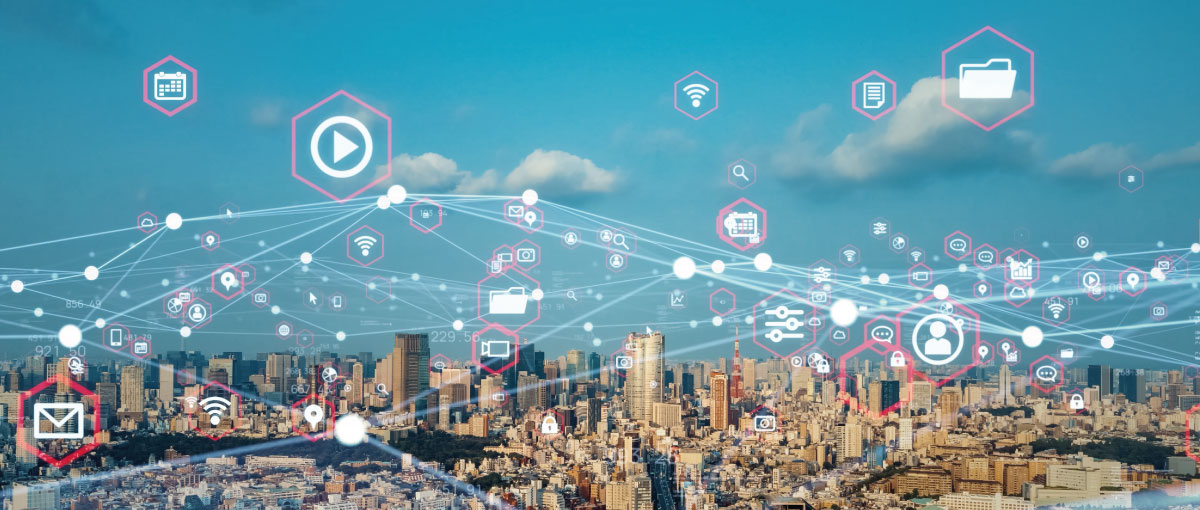#MIPexperience digital transformation i-FLEX
Digital transformation and i-Flex, enable your business to deal with changes
| Author: Vito Conversano, International Flex EMBA student

The entire world is changing. This has always been the case but in the last few decades the phenomenon has accelerated as never before. It was not so many years back that we witnessed first the industrial revolution and then an information technology revolution ̶ now a new way of conceiving the world has arrived, from several point of view. It can be seen both in the goods we are using, and related technologies. Let’s think of smartphones, and how many things multipurpose devices have enabled in our lives. It can be seen in human interaction and relationships. Let’s think of social media and how they have turned our lives upside down. Let’s notice the sales services like e-commerce or sharing services like house-sharing, car-sharing, right up to the simple sharing of software/hardware instead of downloading/owning it.
The rules that worked until few a decades ago for industry leaders, the famous “too big to fail”, may no longer be valid nowadays, since incumbent industries can be destabilized or even devastated overnight by something better and cheaper. Bezos himself, founder and CEO of Amazon, said in 2018 to his employees, “I predict one day Amazon will fail”. He is aware that disruptive innovations are continuously happening. Every business knows that it’s mandatory for survival to adapt to environmental and economic changes. To compete with younger, fresher and lighter startups with their disruptive innovation it’s necessary to have the ability to surf the waves of the digital revolution and be able to handle digital transformation. Options could be either succumbing or getting the enormous benefit from it.
Hence, digital transformation is not only a trend of the moment, but is overwhelming businesses, and, in a kind of Darwinian evolution, selecting only those firms that are able to foresee the opportunities and threats. It embraces all the functions of the business. Everything can start precisely from the strategy of a business. Many new business models have been devised in this period by those who have the vision to see business opportunities which did not exist until the day before. It’s necessary to re-adapt the strategy processes in order to be able to recognize and welcome the changes. Or just to stop a startup hindering the work you have done until now.
But recognizing incoming change may not be enough. It’s necessary to be able to manage the change. The internal organizational structure may need to be updated in order to host more flexible processes or a simplified structure that can implement new strategies. Timing is important for business competition, being reactive is vital. A key aspect that has been introduced by digitalization is the ability to test and revert back. Digital technologies have a pivotal role in the implementation of BPM (business process management) principles.
Those changes will impact the business overall. Examples are multiple. Operations have been drastically reconceived. It’s being talked about Industry 4.0 and Agriculture 2.0. IoT systems entering firms. Digital innovations are becoming part of all production services, not only reducing costs (leading to adapting cost strategy) but mainly improving product quality (adding the differentiation and quality strategy) and enabling higher customer intimacy in the services provided. The market itself is being hit by new ways of being in contact with clients, attracting them and extracting analysis and trends from customers. Everything starts from customers and ends with customers. New branches and jobs are created in the omnichannel marketing area. Also neurosciences are fed with tons of data for their inferences. Data is an important asset in a business, maybe the most important. It makes it easier to perform internal management control or get external insights. Branches like Big Data, Deep Learning or Neural Network find their space in the new mechanisms, or create their own new ones.
Digitalization is also updating the ways of interacting with credit, or of getting funds. New forms of financial services are being introduced that allow differentiation in sourcing or investments. It’s changed the way to approach innovation as well. Depending on strategies, relaxing the confines of internal research and being open to new ideas from outside could be options that would make it possible to generate a significant impact in the differentiation and innovation of a company’s own products or processes.
Those I’ve just mentioned could be only a few suggestions about what digital transformation could mean for present and future businesses, and for society as a whole. It’s a wide argument that is impossible to cover in just a few paragraphs. And it’s in constant evolution, following its characteristics and prospects. Learning and being able to handle all the aspects and functions of a business is becoming crucial. The i-Flex MBA program offered by MIP Politecnico di Milano wants to raise attention with regard to evolving digital trends. It’s structured to place the traditional MBA topics alongside emerging tendencies, revisiting the offer with a view to digital transformation tools and instruments which enable new competences. All the subjects mentioned above, and many others, will be part of your journey, both in the i-Flex MBA program and, more importantly, in your future working life.
Digital is no longer a reason for competitive advantage, rather, it is a reason to succumb if you have not adopted it in the right way.
About the author
|
|
Vito Conversano
Chief Information Officer @ San Marzano Vini SpA with extensive international experience in IT & strategic consultancy for fortune 500 companies. Creative, Curious, Travel lover. Passionate about discovering new concepts, learning continuously and developing new ideas. |






